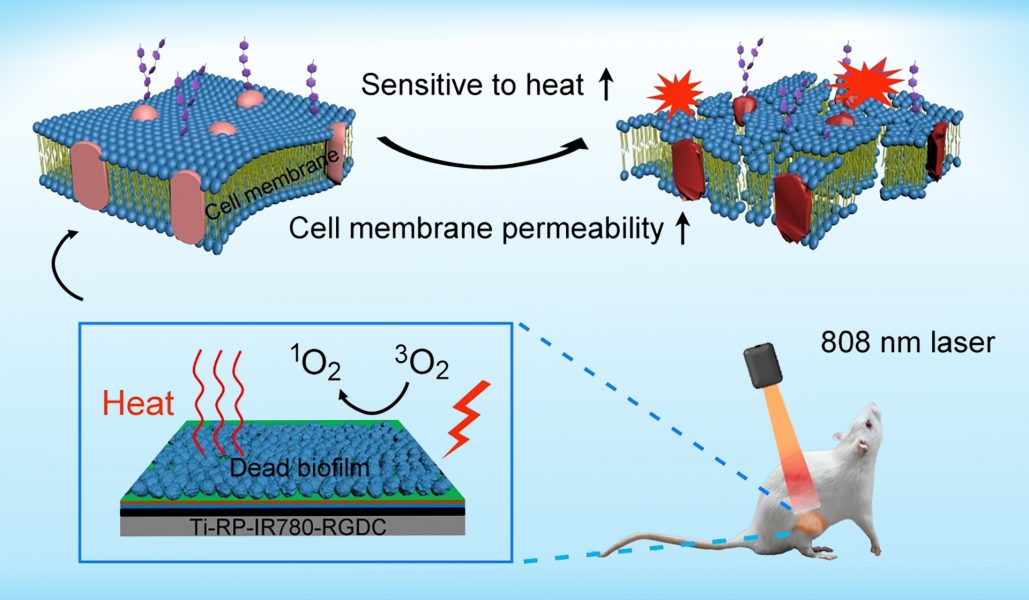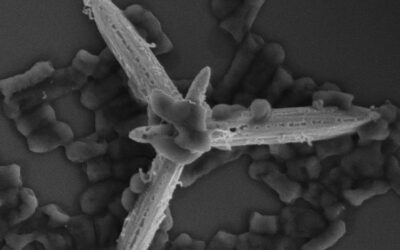Bacterial infections after bone surgery are common and difficult to eliminate, often requiring a second surgery to replace the infected implant.
In a communication in Advanced Materials, Prof. Shuilin Wu of the Hubei Key Laboratory of Polymer Materials, Hubei University, and the School of Materials Science and Engineering, Tianjin University, along with his collaborators, develop a non-invasive, in vivo treatment for biofilm infections resulting from bone implantation.
A biocompatible coating of red phosphorus (RP) was deposited onto a titanium bone implant by chemical vapor deposition. Then, a near-IR sensitizer (IR780) was immobilized onto the film surface in conjunction with polydopamine and an amino acid sequence to facilitate cell adhesion and proliferation.
Singlet oxygen is generated by the sensitizer under near-IR irradiation, increasing the thermal sensitivity of the biofilm, leading to high antibacterial efficiency at 50 °C after 10 minutes of irradiation.
Transmission electron microscopy imaging showed loss of cell wall integrity, while live/dead cell staining confirmed the efficiency of this antibiofilm system for treating Staphylococcus aureus infections. This method reduced inflammation of the implant site without damaging the surrounding tissue.
To find out more about this unique biofilm system using RP on bone implants, please visit the Advanced Materials homepage.

















